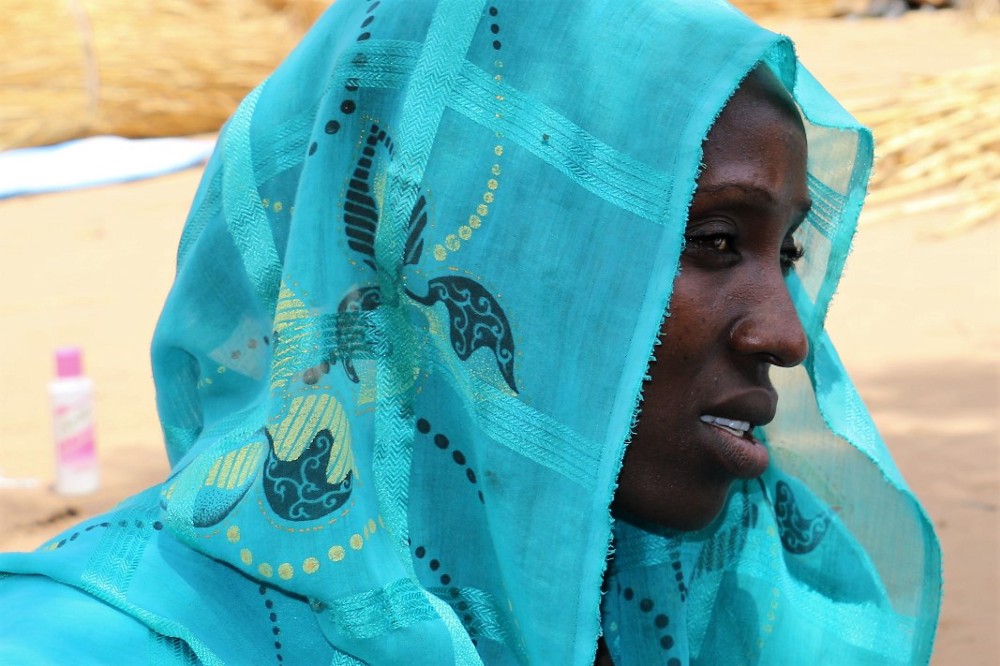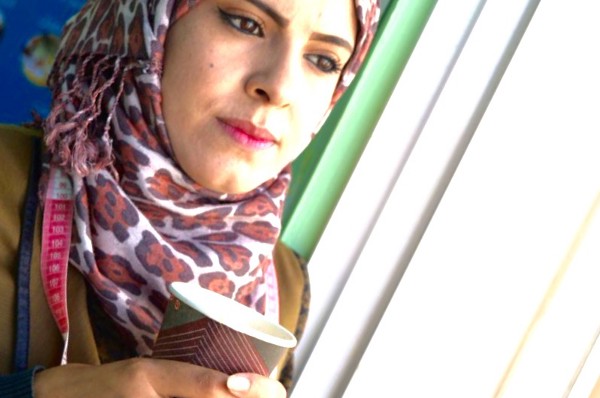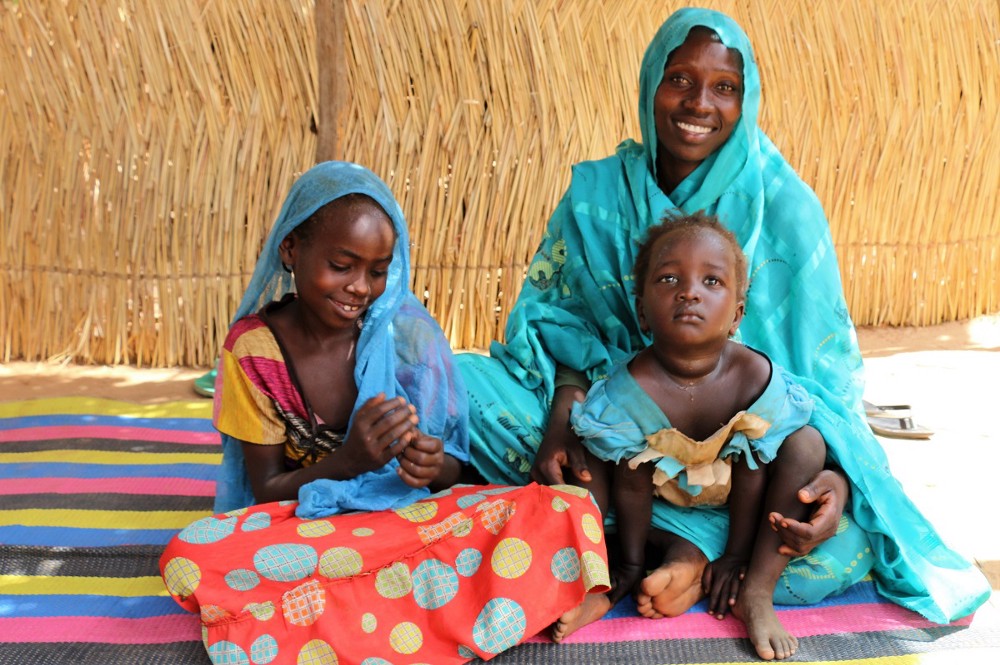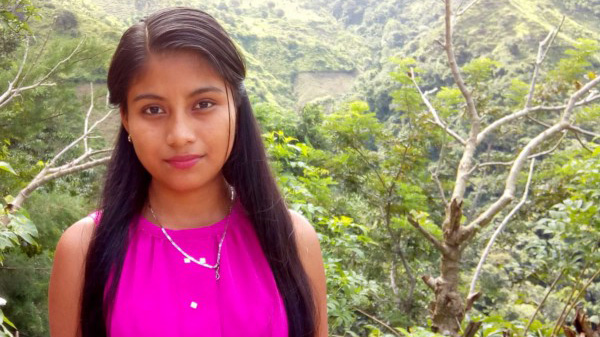‘I discovered a new world’ when I became a Storyteller

Meet Hamda, Kaltouma and Yocelin. At first glance, these three young women —an aspiring fashion designer from Syria who found refuge in Jordan, a Sudanese mother of two teaching languages in a refugee camp in Chad, and a member of a remote, rural community in Guatemala’s ‘dry corridor’ — have very little, if anything, in common. There is one thing, however, that brings them together: the three of them are ‘storytellers’.
Run since 2016 by the World Food Programme (WFP), the Storytellers project trains young refugees, displaced persons or members of vulnerable communities in digital communications, allowing them to produce their own stories, access information and connect directly with a large online audience. So far, training has taken place in Jordan, Chad and Guatemala, and one is about to begin in Uganda.
Hamda in Syria

I was a student in Aleppo. I lived there for two years: it was the most beautiful city I had seen in my life. I still remember everything about it — the smell of the bay trees, the sounds of the streets. The marketplace was a melting pot of people from different races, religions and nationalities. And the countryside was so beautiful. It was a source of comfort and hope for us.
My dream, my hope, is to go back to Syria one day— but now there is nothing but tragedy there. I’ve lost my husband, my life. It’s hard to think too much about it. At one point all I could do was leave. I fled taking only a few things: my papers, my identity card, a mirror that my father had brought to Aleppo, the very last remains of my Syrian money — it is just a few bills and coins, but they are dear to my heart as they remind me of home more than anything.
When I was studying in Aleppo, my teachers used to tell me I had a bright future ahead of me. Now I am starting all over again in Jordan. My dream is to become a fashion designer. I am earning some money here and the first thing I bought with it was a phone!
When I was encouraged to share my memories from Syria and talk about my dreams, I realized that my WFP trainers saw me as an individual with an important experience and story to share. Now I can express myself better and I feel more confident and outgoing.
I also learned how to see my work from an outside perspective. That taught me how to market my work and inspire others through my story and my experiences.
Kaltouma in Sudan

WFP/Nathalie Magnien
My name is Kaltouma Abdelaziz. When our house in Darfur was burnt during the conflict, my family fled, leaving everything behind — our fields, our cows. We arrived in Chad in 2004 and settled in Djabal camp, near Goz Beida. One year later, when I was 15, I was married off to a man who beat me. Luckily, my family was able to pay the dowry and I got out.
In 2013 I married again, for love this time. I am a teacher in the camp and I thought my husband supported me in this. Unfortunately, after the wedding he started to say he wanted me to stay at home and we eventually got divorced. It is hard to be by myself, looking after our two daughters, and I do miss him. But I do not regret my choice. Independence comes at a price and education is crucial, for me and for my daughters too.
I love the work I do, even if I am not paid for it. I teach Masalit, one of the languages spoken in Darfur. Children must know their culture and traditions, even if they don’t know their country — they are still Sudanese. I feel it is my responsibility to pass this on. I also teach English and Arabic. When, for some reason, I do not turn up at the school, the children are upset.
I miss my country. I miss the variety of fruit and vegetables we had in Sudan, where everyone had a garden and we could share our crops with our neighbours. Here I can’t get much fruit or vegetables, and if it wasn’t for WFP’s help I would really struggle to feed my family.
I hope to go back to Sudan one day, and maybe work in the field of journalism. I would like to continue my studies, like some of my friends who are now at university here in Chad. But it is very difficult with two young daughters to raise on my own.
The Storytellers training, for me, was an eye opener. Thanks to what I have learned, and especially through Facebook, I have been able to discover a new world, interact with new people and let them know about the reality we live in.
Yocelin in Guatemala

My name is Yocelin Ramírez García. I live in a village called Oscurana in the department of Zacapa, Guatemala. Our houses are made of wood and mud. We do not have water in the village, so every day our women must walk for about 45 minutes to the stream to fill buckets or wash clothes.
There are very few opportunities for us women here. Mostly we make tostadas (crispy corn tortillas) — some for eating, some for selling. We do house chores and some of us work in the fields. We need to be able to learn new skills so that we can help our community develop.
When I was selected to be on the Storytellers programme, I was so excited I could not believe it! After my mother had an accident three years ago, I dropped out of school to look after my three younger siblings. She has not been the same since, but we are grateful that she is alive. Life should be valued, always.
To attend the Storytellers training I had to wake up at 2 a.m. so that I could get everything ready and clean at home before I set off for the city at 4 a.m.
This training has helped me develop my skills and abilities, and I hope I will be able to use them to pursue my dreams and help my community to improve. Technology allows us to find out what is going on around us, and social networks give us the opportunity to reach out to the world. I think photography and video — although subject to interpretation — are a wonderful tool to express ourselves and let others know about our community — our traditions, our way of living, our food, everything.
—
After the Storytellers training, Yocelin obtained a scholarship with WFP’s partner in the project, INTECAP, Guatemala’s leading professional training institute, to train as a beautician.
Follow Kaltouma, Hamda and Yocelin through the Storytellers Facebook page.
Your support helps WFP deliver lifesaving food to the most vulnerable people in conflict zones around the world.




